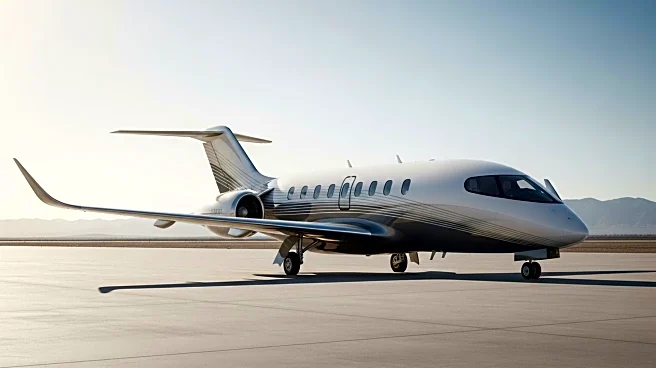What's Happening?
Ryan Air, a cargo airline based in Alaska, has ordered an Alia electric plane from BETA Technologies, marking a significant step towards sustainable aviation. The Alia plane, designed for conventional takeoff and landing, will be used to deliver essential goods to over 70 rural communities in Alaska, many of which are inaccessible by road. The aircraft can carry up to 1,250 pounds of cargo and is equipped to handle severe weather conditions. Ryan Air plans to install up to ten BETA Charge Cube stations to support the aircraft, which are compatible with other electric vehicles, aiming to reduce reliance on diesel generation in rural areas.
Why It's Important?
This development is crucial for advancing sustainable aviation, particularly in remote regions like Alaska where air transport is vital. The use of electric aircraft reduces carbon emissions and sets a precedent for other airlines to consider similar technologies. By installing charging stations, Ryan Air is promoting cleaner energy solutions, which could influence energy policies and infrastructure in rural areas. The initiative may also enhance logistics and supply chain efficiency, benefiting isolated communities economically and socially.
What's Next?
Ryan Air's adoption of electric aircraft may encourage other airlines to explore sustainable aviation technologies, potentially leading to industry-wide shifts. The installation of charging stations could prompt local governments to invest in renewable energy infrastructure, supporting the airline's operations and benefiting the wider community. As electric aircraft technology advances, there may be opportunities for expanding routes and services, enhancing connectivity for remote areas. Stakeholders, including environmental groups and aviation regulators, may closely monitor the implementation and performance of these aircraft to assess their impact on emissions and operational efficiency.
Beyond the Headlines
The shift to electric aircraft by Ryan Air could have long-term implications for the aviation industry, including changes in regulatory standards and increased investment in electric propulsion technologies. This development may also influence cultural perceptions of air travel, highlighting the importance of sustainability and environmental responsibility. As electric aircraft become more prevalent, there could be ethical considerations regarding the balance between technological advancement and the preservation of traditional ways of life in remote communities.









